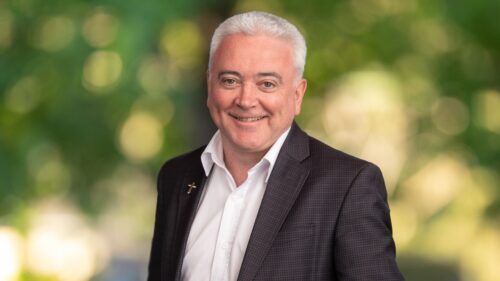
The ten commandments can get bad press. Why is our religion always telling us what we can’t do? Why do we have to follow rules and regulations all the time? Shouldn’t we be just left alone to be able to do good in our own way? You often hear these criticisms of religion when the ten commandments are brought up. And of course, no one wants to be restricted or oppressed by rules for rules sake. I think, however, that there is more to the ten commandments than some arbitrary list of rules. On the third Sunday of Lent, we will hear the ten commandments from the Book of Exodus. They are offered on this Sunday to assist us in preparation for the renewal of our faith at Easter. How is this so?
For an older generation the ten commandments were learnt by heart in a catechetical formula. It often ran something like this:
While this method had advantages it also had the disadvantage of leaving out some of the important context and content of the commandments. It we look at Exodus 20:1-2 we can find the full text of the first commandments. It goes like this: “God spoke all these words. He said, ‘I am the Lord your God who brought you out of the land of Egypt, out of the house of slavery. You shall had no gods except me.” So, we discover that there is a particular context for the first commandment. God is the one who leads his people out of slavery into freedom. We should pause and reflect on this. God does not want human beings to be enslaved, to live in servitude, to be weighed down by oppression or fear. God is the one who liberates and frees us from the slavery of oppression, sin and death. God is the God of life. Only when we fully understand the first line of the commandments does it then make sense to say, ‘you shall have no god before me’. In other words there is no God but the God who lifts the burdens of that to which we are enslaved. There is no God but the one who wants liberty for human beings. There is no God but the God who distances himself from all that oppresses or kills human beings and the human spirit. So, honour this God, (commandment one) and do not make other idols or Gods (commandment two) and do not take God’s name in vain (commandment three). In other words, do not lightly or idly speak of the God who brings freedom and life and wants all human beings to flourish. Speak of this God with awe and reverence for he wishes life for all.
Once we understand the first three commandments, we can perhaps make sense of the last seven. They are the implications and obligations that human beings have towards one another which flow from the belief that God desires the fullness of life for all. If God is the one who leads us from ‘slavery to freedom’ we should treat each other in the same way. When asked which was the greatest commandment of all, Jesus replied: “You shall love the Lord your God with all your heart, and with all your soul, and with all your mind. This is the greatest and first commandment. And the second is like it: You shall love your neighbor as yourself.” Jesus’ response is really a summary of the whole ten commandments.
So, as we continue our Lent path towards Easter let’s take the commandments with us and ask God again to free us from whatever is weighing us down. And we can do the same for others without doing anything more spectacular than simply following the last seven commandments.
Published: 1 March 2024
19 Brenbeal Street, Balwyn VIC 3103
Telephone: 03 9816 9291
Email: [email protected]
Office Hours:
Tue - Fri 9:00am – 5:00pm